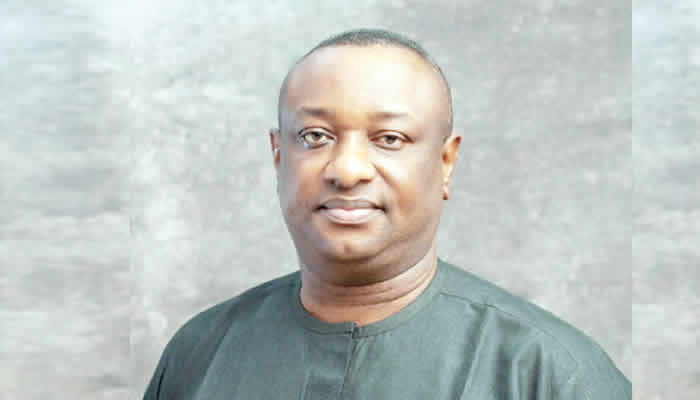Festus Keyamo, Nigeria’s Minister of Aviation and Aerospace Development, has issued a stark warning to the Peoples Democratic Party (PDP), asserting that their 2027 presidential ambitions are fraught with peril should they choose either former President Goodluck Jonathan or former Anambra State Governor Peter Obi as their candidate. Keyamo’s analysis, delivered via a detailed post on his X (formerly Twitter) account, centers on the PDP’s perceived strategic missteps, particularly their failure to zone their 2023 presidential ticket to the southern region of Nigeria. This decision, Keyamo argues, cost the party significant support in their traditional strongholds and has left them in a precarious position moving forward.
Keyamo’s critique focuses on the potential legal and political ramifications of choosing either Jonathan or Obi. Regarding Jonathan, he highlights the constitutional ambiguity surrounding a second term for a president who has already served one, citing Section 137(3) of the 1999 Constitution (as amended). This section, Keyamo argues, potentially disqualifies anyone twice sworn in as president from contesting again. He emphasizes the significant risk this poses to the PDP, warning that a legal challenge based on this section could ultimately lead to the Supreme Court disqualifying Jonathan after the party’s nomination process, leaving the PDP without a candidate. This, he asserts, would be a self-inflicted wound, a consequence of the PDP’s failure to heed the clear legal danger.
Turning his attention to Peter Obi, Keyamo dismisses the notion that bringing the former Labour Party candidate into the PDP fold would solve the party’s problems. He argues that such a move would likely alienate Obi’s core supporters, who might perceive it as a betrayal of his previous stance and a return to the “establishment” politics they reject. Additionally, Keyamo questions Obi’s credibility, suggesting that his previous pledge to serve only one term could undermine his appeal if he were to seek the presidency again. Essentially, Keyamo argues that while Obi might bring some initial enthusiasm, his presence would create more internal divisions within the PDP and fail to address the fundamental issues stemming from the party’s zoning dilemma.
Furthermore, Keyamo dismisses the possibility of a successful PDP candidate emerging from the South-West region. He posits that a fresh Yoruba candidate, eligible for two potential terms, would face significant resistance from other regions of the country, unwilling to concede presidential power to the South-West for a potentially extended period. Moreover, such a candidate would have to contend with the well-established political machinery of the ruling All Progressives Congress (APC) within the South-West, making a victory highly unlikely. Keyamo emphasizes the necessity of securing broad support across multiple regions to win a presidential election in Nigeria, a feat he believes a South-West PDP candidate would be unable to achieve.
Keyamo’s overarching argument centers on what he terms the PDP’s “original sin” – the failure to zone the 2023 presidential ticket to the South. This, he contends, has created a deep-seated resentment and mistrust within the party, particularly among southern voters. He dismisses any attempts to downplay the significance of zoning, highlighting the enduring political realities of Nigeria, where regional power-sharing remains a crucial factor. He concludes that unless something extraordinary occurs, the PDP’s chances of reclaiming the presidency are slim, potentially relegating them to the political wilderness until 2031.
Keyamo’s analysis paints a bleak picture for the PDP’s 2027 prospects, regardless of their chosen candidate. He argues that the party is trapped in a self-made predicament, burdened by internal divisions and strategic blunders. His public pronouncements serve not only as a critique of the opposition but also as a subtle reinforcement of the ruling APC’s position, highlighting the perceived stability and strategic foresight of the current administration. The PDP has yet to respond to Keyamo’s assertions, leaving the political landscape open to speculation and further analysis as the 2027 election cycle gradually takes shape.


